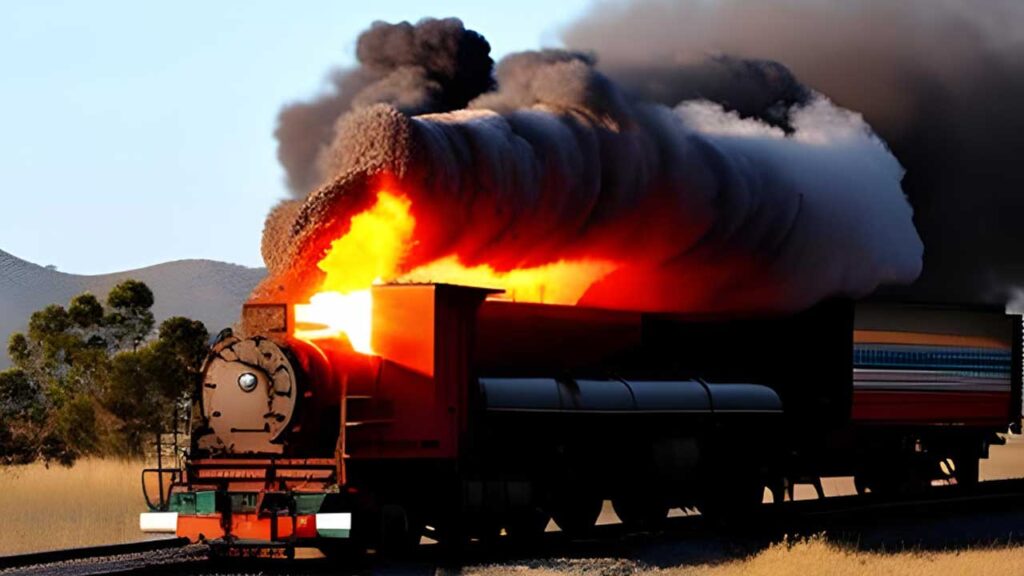No, kerosene will not damage a diesel engine. Kerosene is composed of hydrocarbons that are similar to those found in diesel fuel and has a lower flash point than diesel fuel. As such, it can be used as an alternative fuel source in certain types of engines where cold-weather operation is of concern.
However, while kerosene may not damage the engine outright, its use should still be avoided whenever possible. It does burn more slowly than diesel fuel and therefore creates more soot buildup which can build up over time and cause excessive clogging or deposition on valve seats leading to performance losses or even complete failure if left unchecked for too long.
Kerosene is commonly used as fuel for lamps and stoves, but it should never be used to fuel a diesel engine. The different chemical compositions of the two fuels can cause kerosene to damage your engine, leading to decreased performance and even complete failure. In order to keep your diesel engine running smoothly, make sure you always use high-grade diesel fuel rather than kerosene.
How to Convert Kerosene to Diesel
The process of converting kerosene to diesel is relatively simple, but requires a few special pieces of equipment. To begin the conversion process, you will need to heat up the kerosene and then pass it through a distillation column in order to separate out the different hydrocarbons that compose the fuel. Then, these hydrocarbons can be blended together in precise ratios until they form diesel fuel.
Finally, after this blending process is complete, an additive must be added for proper lubrication and combustion. This final step ensures your newly created diesel is ready for use!
Diesel Kerosene Mix Ratio
The diesel kerosene mix ratio varies depending on the type of engine and climate conditions. Generally, a mixture of one part diesel fuel to three parts kerosene should be used for colder climates, while a mixture of two parts diesel fuel to one part kerosene may be better suited for warmer weather. It is important to consult with an experienced mechanic before making any changes in order to ensure that your engine will run safely and efficiently.
Does Kerosene Clean Diesel Injectors
Kerosene can be used to clean diesel injectors, however it is not recommended due to the risk of damaging the injector and causing further issues with your engine. Kerosene has a higher boiling point than diesel fuel and therefore will not evaporate as quickly, leading to residue buildup that could clog the injector. Furthermore, kerosene contains impurities which may cause corrosion or damage other engine components.
It is best practice to use only approved cleaning solutions when attempting to clean diesel injectors.
Kerosene Vs Diesel for Heating
Kerosene and diesel fuel both have their advantages when it comes to heating. Kerosene is more commonly used in homes due to its availability and lower price, while diesel has a higher heat output so it may be more suitable for larger spaces. Diesel also produces less smoke than kerosene, making it an overall cleaner option for indoor use.
However, the cost of owning and maintaining a diesel-powered heater can be much higher than that of a kerosene one.
Adding Kerosene to Diesel to Prevent Gelling
Adding kerosene to diesel fuel can help prevent gelling, which occurs when temperatures drop below 32°F. The kerosene helps lower the pour point of the fuel and allows it to remain in a liquid state at colder temperatures. It is important to note that adding too much kerosene can cause problems such as increased engine wear or clogged fuel filters.
Therefore, it’s best to consult an expert before attempting this process.

Credit: www.farmandfleet.com
Will a Little Kerosene Hurt a Diesel Engine?
No, a little kerosene will not hurt a diesel engine. In fact, it may even help in certain situations. While most modern diesel engines are designed to run on diesel fuel exclusively, some older models can benefit from the addition of kerosene as a lubricant.
Of course, using too much kerosene can lead to premature wear and tear on your engine components and should be avoided at all costs. Additionally, you should never mix any type of gasoline with diesel as this can cause serious damage to both the engine and other parts of your vehicle. To ensure optimum performance from your vehicle’s engine it is always recommended that you stick with pure diesel fuel when possible for best results!
How Much Kerosene Can You Add to Diesel?
Kerosene can be used as a fuel in diesel engines, but it’s important to know how much kerosene you can add to diesel safely. Generally, the maximum amount of kerosene that you should mix with diesel is 10%. Adding more than this could damage your engine and cause poor performance.
It’s also important to remember that adding any amount of kerosene will affect the octane rating of the fuel blend, so it’s essential to check your manufacturer’s recommendations for appropriate octane levels before mixing. In addition, when using a blend of kerosene and diesel, regular maintenance is key; filters need to be changed more frequently so that debris from the fuels do not build up in the system. All in all, while blending small amounts of kerosene into diesel can have its benefits such as reduced emissions or improved combustion efficiency depending on engine type and design – doing so improperly could result in significant damage down the line.
Can You Mix off Road Diesel With Kerosene?
The answer to the question of whether or not you can mix off road diesel with kerosene is yes, but it is not recommended. Off road diesel and kerosene are both petroleum-based fuels commonly used in industrial settings, but they have some key differences that make blending them a less than ideal solution. Off road diesel has been treated with additives like detergents and lubricants, while kerosene often lacks these ingredients, which means mixing the two could result in an engine running much more inefficiently than normal.
Additionally, since the two fuels don’t share any common components beyond their base of crude oil derivatives, there’s no guarantee that their properties will remain consistent when blended together; this means your engine may suffer from reduced power output or worse as a result. Finally, using fuel blends also changes how taxes apply to your purchase – meaning you may end up paying more for your fuel than necessary if you choose to blend off-road diesel and kerosene. For all of these reasons it’s best to avoid mixing these two types of fuel whenever possible so that you can ensure optimal performance from your engine without risking damage due to incompatible chemicals or unnecessary taxation costs.
What is the Difference between #1 Diesel And Kerosene?
#1 diesel and kerosene are two very different products that have different uses. #1 diesel fuel is a type of petroleum-based fuel used in motor vehicles, while kerosene is a combustible hydrocarbon liquid made from coal or petroleum and primarily used as a heating, lighting, or cooking fuel. #1 diesel has higher energy content than kerosene and its molecular composition includes more carbon atoms with longer chains of molecules than found in kerosene.
As such #1 diesel produces more power per gallon when compared to the same volume of kerosene making it suitable for use in vehicle engines where increased performance is required. However, due to this higher energy content, #1 diesel also emits more pollutants into the air when burned than does kerosene – making it less environmentally friendly. Additionally, since #1 diesel can cause damage to some home heating systems if used instead of standard home heating oil (which consists mostly of kerosenes), it’s important to ensure you use the correct product for your needs!
Conclusion
In conclusion, while it may be tempting to use kerosene as an alternative fuel in a diesel engine, the results could be disastrous. The wrong fuel will not only damage the engine but can lead to expensive repairs and potential safety hazards. It is best to stay away from using kerosene in a diesel engine and stick with diesel fuel for optimal performance.

Hi, I’m Kermit L. Williams, and I’ve spent the better part of my life immersed in the world of automobiles, with a particular passion for Powerstroke engines. As an automotive expert, I’ve spent countless hours tinkering with engines, testing products, and sharing my knowledge with other enthusiasts.
Through my work on PowerstrokeGuides.com, I aim to share that knowledge with others and help them make informed decisions about their automotive purchases and maintenance. Whether you’re a seasoned Powerstroke enthusiast or just starting out, I’m here to provide you with the insights and expertise you need to take your vehicle to the next level.







